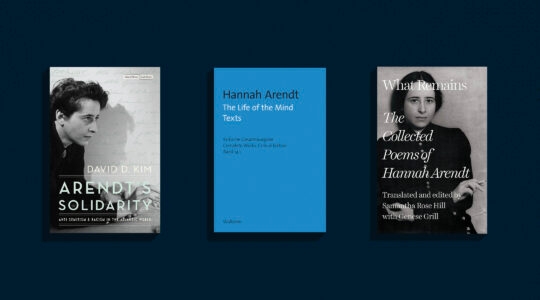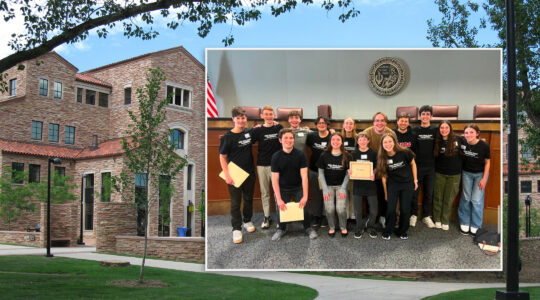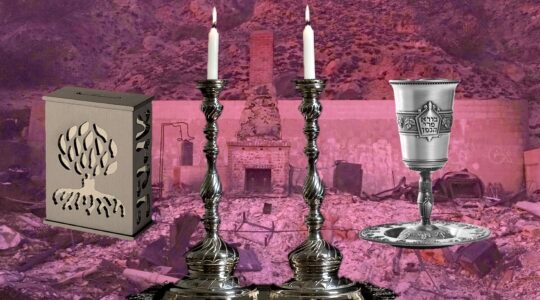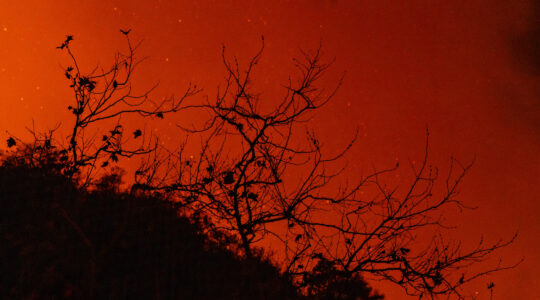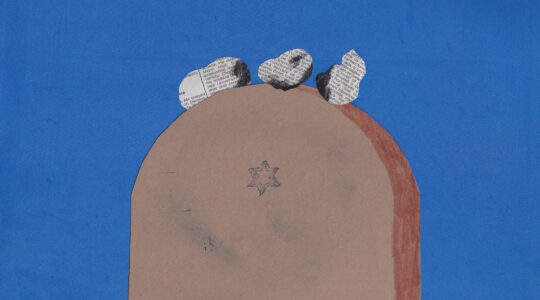In an ironic convergence, one day next week has significance — with divergent symbolism — for the Jewish community, for the Muslim community and for our entire country.
Saturday, Sept. 11 — Tishri 3 on the Hebrew calendar, Shawwal 2 on the Islamic calendar — is the date of the Fast of Gedalia, a minor fast in Judaism immediately after Rosh HaShanah.
The fast, postponed until Sunday this year because it falls out on Shabbat, commemorates the murder of Gedalia ben Achikam, the Babylonian–appointed governor of the province of Judah after the conquering of Jerusalem 2,500 years ago. A zealot, Yishmael ben Netaniah, killed him in one of the first recorded Jew-on-Jew assassinations. That act of violence marked the end of limited Jewish autonomy in the Holy Land, the exile of the remaining Jews and the completion of the First Temple’s destruction.
It is a day when we remind ourselves of the fatal consequences that ensue when High Holy Days worshippers don’t take to heart the pious words we recite in synagogue.
Next Saturday also is the second day of Eid al-Fitr (Arabic for Festival of the Breaking of the Fast), an Islamic day of celebration, ending the month-long fast of Ramadan, which commemorates the Prophet Muhammad’s migration from Mecca to Medinah.
A three-day holiday in many countries, Eid al-Fitr is a time for prayer and gift giving, of communal meals and thanksgiving for the strength to endure weeks of physical deprivation. For Muslims, it is a reminder both of their holy past and of contemporary dependence on God.
And next Saturday, of course, is 9/11, the ninth anniversary of the bloodiest terrorist attack ever on American soil. Americans need no reminder of the date’s symbolism: the triumph of hate and intolerance over reason and acceptance, a modern manifestation of the Jewish murder in Babylonian days.
The shared dates of reflection offer a rare opportunity to come together, spiritually if not physically, as believers in human dignity and the rejection of hate that leads to violence.
While observant Jews will fast after three days of feasting (on Rosh HaShanah and Shabbat), and Muslims will feast after a month of sunup-to-sundown fasting, members of both faiths will be following their religious beliefs, a freedom that Americans venerate and the perpetrators of 9/11 despised.
For most Americans, Saturday will be a day of public grief, of personal memories, of tearful ceremonies for people who have no graves. Some Muslims, according to news reports, fear their celebrations on that day will be misinterpreted as rejoicing over the 2001 tragedy. Their concern, always high on an anniversary that marks mass murder committed in the name of Islam, is heightened this year in the midst of vitriolic debates over the planned Islamic center near the site of the destroyed World Trade Center.
Many Muslims will temper public displays of their Eid el-Fitr festivities this year; the Islamic Circle of North America, which organizes annual Muslim Family Days at Six Flags amusement parks in several cities, won’t do it on Saturday.
For the great majority of Muslim Americans, 9/11 is as much a day for mourning as it is for other Americans; several hundred Muslims lost their lives in the Twin Towers.
Jewish history offers a precedent for tempering one’s celebration while observing a religious holiday. Abraham Lincoln was assassinated in 1865 on the fifth day of Passover. American Jews in that week of national sadness took part in the mourning. Synagogue altars were quickly draped in black, melancholy Yom Kippur hymns were chanted instead of joyous Passover melodies, and rabbis wept on their pulpits.
But Pesach was observed, without charges of insensitivity — or disloyalty — from the majority non-Jewish population. There were no repercussions for American Jewry.
That is the greatness of the United States. Respect for our neighbors’ faith. That ethos of acceptance is what we cherish this week, and what threatened the four planes’ hijackers nine years ago.
On the eve of two faith’s holidays and the nation’s day of remembrance, The Jewish Week wishes to its Jewish readers a l’shana tova, to our Muslim neighbors a “Blessed Eid” and to all Americans a day of healing.
The New York Jewish Week brings you the stories behind the headlines, keeping you connected to Jewish life in New York. Help sustain the reporting you trust by donating today.
